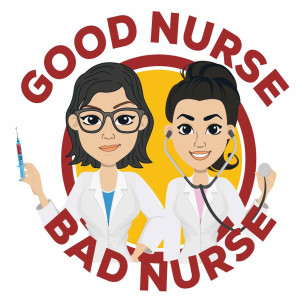
WIHI - A Podcast from the Institute for Healthcare Improvement
Health & Fitness:Medicine
Date: September 27, 2012
Featuring:
- Elliott Fisher, MD, MPH, Director, Center for Population Health, Dartmouth Institute for Health Policy and Clinical Practice
- Palmer “Pal” Evans, MD, former Senior Vice President & Chief Medical Officer, Tucson Medical Center (TMC)
- John Friend, Vice President Business Development & Associate General Counsel, TMC Healthcare; Executive Director, Arizona Connected Care, LLC
One of the best-kept secrets about US health care this election season is the degree to which change and transformation are coming, no matter what happens in November. You won’t hear “global payment” or Medicare Shared Savings Program mentioned as often as “individual mandate” in the current political debate, but ask anyone leading a health care organization today which issue keeps them up at night, and it’s definitely payment reform. In general terms, the entire system is shifting from paying for volume – lots of procedures – to paying for value, or how well patients are cared for over time and across the continuum.
Accountable care organizations (ACOs) are one critical new reflection of this migration, and they’re being encouraged by public and private payers alike. What do we know about the more than 200 ACOs that have formed in the US thus far? It’s still early in the process, but some smart people are keeping a close eye on ACOs, and we’re going to be talking with a few of them on WIHI.
As Director of Population Health and Policy at the Dartmouth Institute for Health Policy and Clinical Practice, Dr. Elliott Fisher is leading a major study of the factors enabling ACOs to get up and running and to successfully implement new forms of care delivery. WIHI host Madge Kaplan welcomes Dr. Fisher to the show to share what he and his team of evaluators have learned thus far. He’ll be joined by leaders from Tucson Medical Center, one of the nation’s earliest adopters of the ACO concept. Dr. Palmer “Pal” Evans and John Friend from Arizona Connected Care both say that one of the biggest hurdles for newly forming ACOs is to let go of the notion that hospitals can and should run the show. That’s not where the future is headed, both say, and they’re learning this in spades in Arizona. They’re also learning how to build will and buy-in from mostly independent physicians, a situation that’s typical of most US hospitals.
There are plenty of uncertainties ahead, but Elliott Fisher, Pal Evans, and John Friend agree that ACOs or something similar are likely to be a feature of reform for the forseeable future. They share their perspectives and answer questions on WIHI.
For some background on Tucson Medical Center’s entrance into the ACO experiment, please take a look at these Commonwealth Fund case studies published earlier this year.
More Episodes
WIHI: No Excuses, No Slack! The Latest from the Front Lines on Hand Hygiene
 2017-06-27
2017-06-27
WIHI: Clinicians and Financial Staff Can Improve Quality and Lower Costs, Part 2
 2017-06-27
2017-06-27
WIHI: Employers and Employees Can Improve Quality and Lower Costs: Stories from the Front Lines, Part 1
 2017-06-27
2017-06-27
WIHI: A Partnership to Reduce Deaths from Sepsis
 2017-06-27
2017-06-27
WIHI: Navigating New Care Teams with Nurse Practitioners
 2017-06-27
2017-06-27
WIHI: Reality Knocks with Reducing (Hospital) Readmissions
 2017-06-27
2017-06-27
WIHI: OpenNotes: Doctors and Patients Are on the Same Page
 2017-06-27
2017-06-27
WIHI: Gaining Ground: Quality Improvement and US Medical Residency
 2017-06-27
2017-06-27
WIHI: Navigating the Elections with a Clear-Eyed View
 2017-06-27
2017-06-27
WIHI: Conversations as Cornerstones of End-of-Life Wishes
 2017-06-27
2017-06-27
WIHI: Minimally Disruptive Medicine
 2017-06-27
2017-06-27
WIHI: Triple Perspectives on Triple Aim in a Region
 2017-06-27
2017-06-27
WIHI: Essential Skills for Health Care Reformers and Improvers: Holding Tension and Learning Habits of the Heart
 2017-06-27
2017-06-27
WIHI: Situational Awareness and Patient Safety
 2017-06-27
2017-06-27
WIHI: Testing,Testing! Is This Procedure Necessary?
 2017-06-27
2017-06-27
WIHI: "Pursuing the Triple Aim" Book Discussion with the Authors and Innovators
 2017-06-27
2017-06-27
WIHI: You Can't Improve What You Can't Evaluate
 2017-06-27
2017-06-27
WIHI: Going, Going, Green! Embedding Environmental Health and Sustainability into Health Care Delivery
 2017-06-27
2017-06-27
WIHI: What Can You Learn in 90 Days? IHI’s Innovation Process
 2017-06-27
2017-06-27
Create your
podcast in
minutes
- Full-featured podcast site
- Unlimited storage and bandwidth
- Comprehensive podcast stats
- Distribute to Apple Podcasts, Spotify, and more
- Make money with your podcast
It is Free
You may also like

Good Nurse Bad Nurse


The Relaxback UK Show


On Call With Dr. Anselm Anyoha


RFK Jr Podcast


The Curbsiders Internal Medicine Podcast


- Privacy Policy
- Cookie Policy
- Terms of Use
- Consent Preferences
- Copyright © 2015-2024 Podbean.com


 iOS
iOS Android
Android